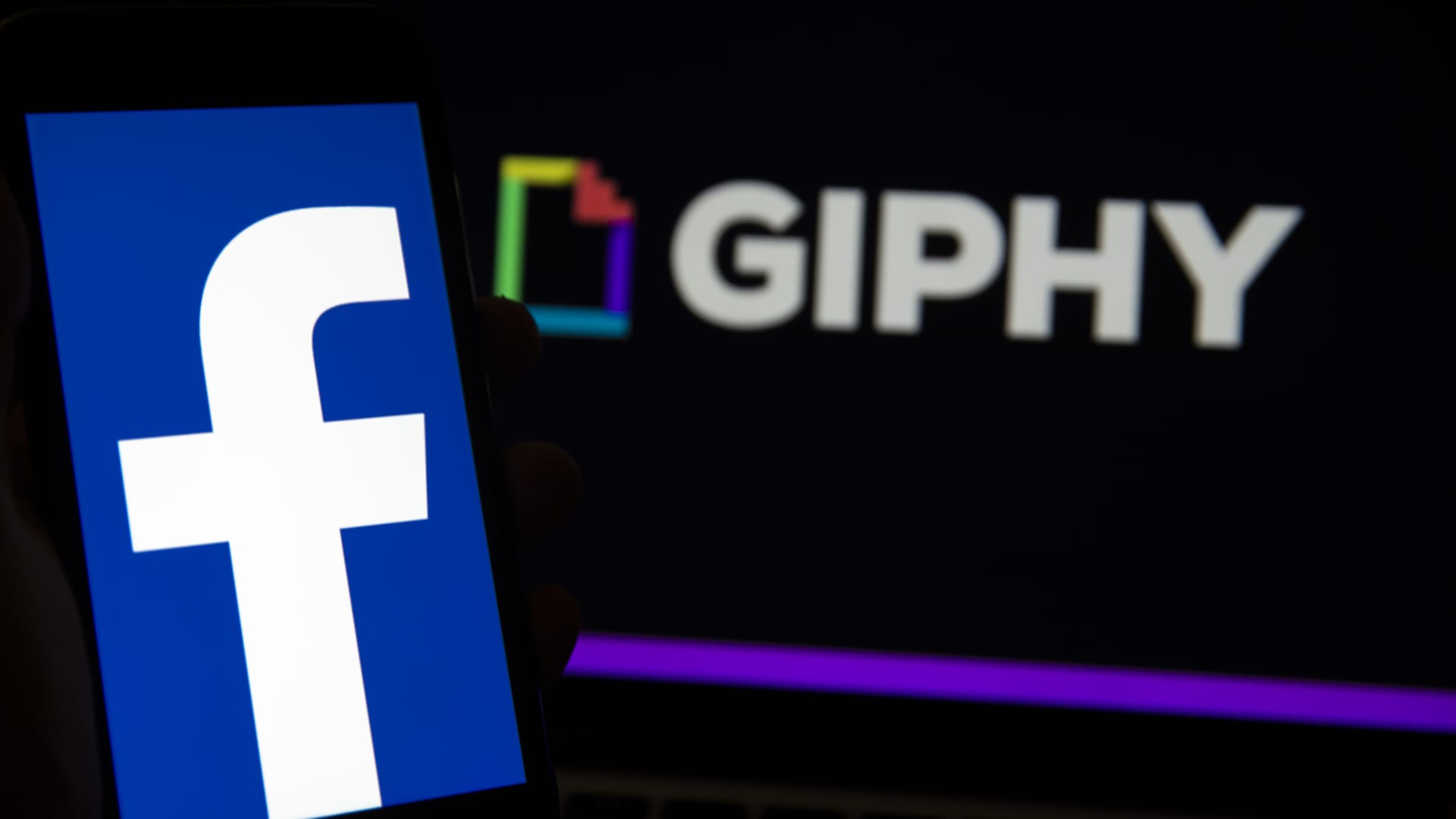The logos of Facebook and Giphy.
Aytac Unal | Anadolu Agency via Getty Images
Meta, the owner of Facebook, admitted defeat Tuesday after U.K. competition regulators issued a final verdict ordering the company to sell its animated image-making unit Giphy.
Citing the risk of a substantial lessening of competition in the social media and display advertising market, the Competition and Markets Authority said Tuesday that Meta must “sell GIPHY, in its entirety, to a suitable buyer.” It is not yet clear which company will step in to buy Giphy.
In a statement, a Meta spokesperson said the company was “disappointed by the CMA’s decision but accept today’s ruling as the final word on the matter.”
“We will work closely with the CMA on divesting GIPHY,” the Meta spokesperson told CNBC. “We are grateful to the GIPHY team during this uncertain time for their business, and wish them every success. We will continue to evaluate opportunities – including through acquisition – to bring innovation and choice to more people in the UK and around the world.”
In November, the CMA ordered Meta to divest Giphy after finding the combination of the two companies raised competition concerns. Meta tried to appeal the decision. However, in June, a court largely ruled against the company’s appeal, kicking the final decision over the fate of the deal back to the CMA. After a three-month review, a CMA panel ruled the deal would enable Meta to further increase its market power.
Meta’s $400 million acquisition of Giphy was hardly one of the social media giant’s biggest. It has spent far greater sums on earlier deals, including the $1 billion acquisition of photo-sharing app Instagram and the $19 billion buyout of encrypted messaging platform WhatsApp.
GIFs ‘cringe’
In an August court filing, Giphy tried to downplay the significance of Meta’s takeover of the company with an unorthodox argument — its core product offering was going out of fashion, so there’d be no other company willing to buy it.
GIFs “have fallen out of fashion as a content form, with younger users in particular describing gifs as ‘for boomers’ and ‘cringe,'” the company said in the filing. Giphy has seen a decline in the number of GIF uploads in the past two years, it added.
But the CMA took issues with the takeover — specifically with impact it would have on the U.K. display advertising market. Meta controls nearly half of the U.K.’s £7 billion ($7.9 billion) display advertising market.
“Before the merger, Giphy was offering innovative advertising services in the US and was considering expanding to other countries, including the UK,” the regulator said. Such services would have allowed brands like Dunkin’ Donuts and Pepsi to promote their brands through GIFs, it added.
The CMA also cited the prospect of Giphy relinquishing its own ambitions in digital advertising in its decision to block the deal. Giphy had plans to launch its own ads but these were quashed by Meta after the takeover was completed in 2020, according to the regulator. The watchdog said this effectively “removed Giphy as a potential challenger in the UK display advertising market.”
The CMA said it found Meta’s purchase of Giphy would have restricted rival social media firms’ access to the platform’s GIFs, driving users to Meta’s own services. It added that the move may result in Meta changing its terms of service to curb competition — for example, by requiring customers of Giphy, like China’s TikTok, to provide more data from their U.K. users to secure continued access its GIFs.
Landmark move
It is the first time a global regulator has unwound a completed deal by a Big Tech company. The CMA is seeking to become a greater force in the battle among global regulators to rein in Big Tech companies.
Alongside the European Commission, the EU’s executive arm, it has several ongoing high-profile investigations into the likes of Meta, Google and Apple, and wants powers from the government to levy bigger fines against tech giants over breaches of competition law.












